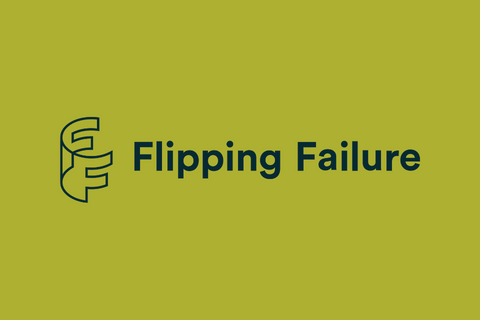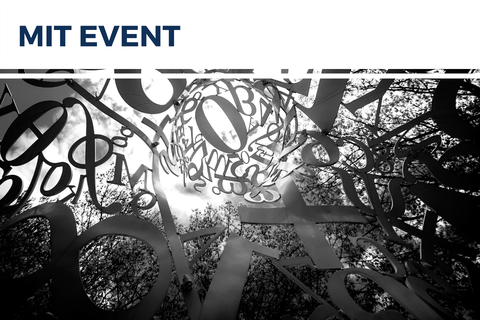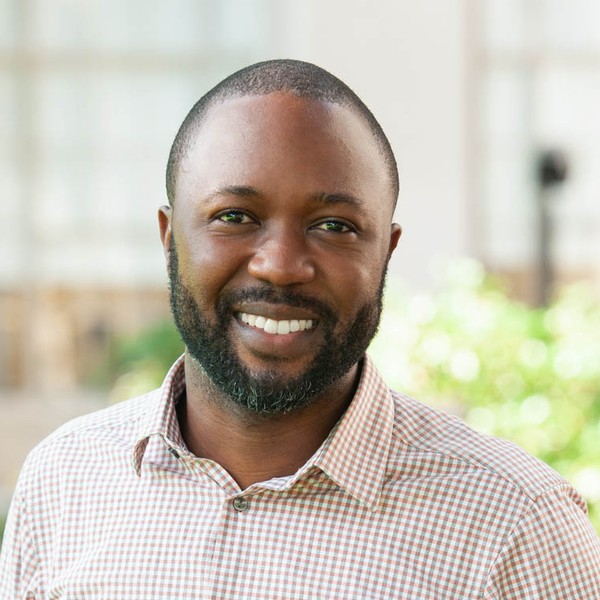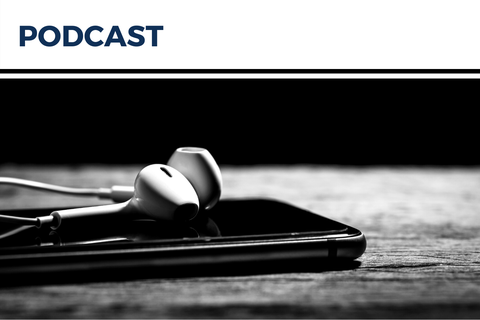Communication
Effective and polished written and verbal communication skills are indispensable in every field and career path. As a graduate student researcher, you are already deeply engaged in developing your writing skills as you prepare your work for publication. As you advance, you are likely to find yourself presenting your work with greater frequency to diverse audiences within and external to academia. Communication as a professional development focus for graduate student means:
- Integrating diverse media into your communications and presentations
- Learning forms and rhetorical strategies to make the case for the stakes and importance of your research
- Sharing your expertise with clarity and confidence
- Listening actively to understand and then responding authentically and with empathy, especially during challenging or critical conversations
- Building clarity and trust in your communications with colleagues and collaborators
This page collects resources from across the Institute that support graduate student professional development in the area of communication.
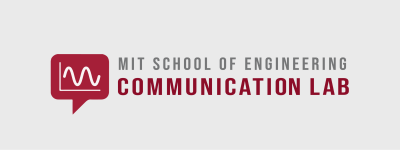
Engineering Communication Labs
The Communication Labs help students and postdocs improve their technical and professional communication skills through services and resources tailored to different technical disciplines:
- Free, one-on-one communication coaching sessions with a trained peer coach from your discipline
- Get support with brainstorming, drafting, or revising.
- Work with our coaches on papers, presentations, posters, fellowship applications, faculty applications, and more.
- Workshops, bootcamps, and other events
- Online CommKit guides: Quick how-to articles about technical and professional communication tasks, including discipline-specific, annotated examples
Find a Communication Lab in your discipline: Click one of the departments below to make a coaching appointment or access CommKit articles.

The Writing and Communication Center
The Writing and Communication Center offers free one-on-one professional advice to assist graduate students with all types of academic and professional writing and can help you further develop your oral communication skills:
- Individual Consultations on oral, visual, and written projects (check available sessions here)
- Workshops on various aspects of academic writing (contact us at writing-center@mit.edu)
- Writing Together Online groups
Visit the Writing and Communication Center to work on: grant and fellowship proposals, journal articles, thesis or dissertation proposals and chapters, research or personal statements,teaching or diversity statements, scientific and technical reports, classroom presentations, start-up materials and pitches, conference and job talks, dissertation defense, and slide and poster design.
The Writing and Communication Center can even help with overcoming shyness/stage fright, writer’s block, and other communication challenges.
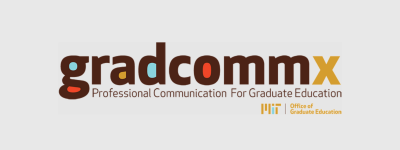
GradCommx
The Office of Graduate Education’s GradCommx initiative provides innovative training for graduate students on professional communication through a variety of media content.
Explore the excellent GradCommx content library, which includes videos,the Great Communicators podcast, “Technically Speaking,” an online comic series, and even a video game.
Videos:

PhD Suggestions for Every Stage: Communications
-
Early Stage: Engage
• Prepare a conference paper with a writing tutor at the MIT Writing & Communication Center. Check out their resources for speakers
• Learn to speak in front of a crowd! Sign up for MIT Toastmasters. And check out Professor Patrick Henry Winston’s How to Speak course. -
Middle Stage: Expand
• Develop your “Elevator Pitch” about your research with an MIT CAPD Advisor
• Read MIT resources on Elevator Pitches: the Broad Institute, the NSE Comm Lab, Sloan’s Build Your Personal Brand + Your Elevator Pitch,& the WCC’s Elevator Pitch Tutorial
• Read articles about how to write an elevator pitch, give a PowerPoint presentation, create a poster presentation, etc.: Harvard Business Review and Harvard Writing Center -
Exit Stage: Enhance
• Prepare for a Faculty Interview (aka the Job Talk) for a career in academia. Check out University of Michigan’s advice on Academic Talks
• MIT CAPD’s Steps for Being Prepared for Interviewing & Advice for Researching and Practicing Interviews
• Learn how to do a virtual interview

Application materials for PhDs and postdocs: Examples and how-to guides
These resources are designed for MIT PhDs and postdocs to serve as guides through the process of career document preparation. Whether you’re converting your CV into a resume for an industry role, refining your CV for an academic job search, or creating other documents, you’ll find examples, how-to guides, and strategies here.

Professional development certificates for PhDs and postdocs
MIT offers 2 new professional development certificates to help graduate students and postdocs fast track and focus their growth in two essential areas: mentoring and grant writing.
The MIT School of Engineering Communication Lab, which turned 10 in 2023, helps students translate their work for broader impact.
For a decade, the MIT School of Engineering Communication Lab, which originated in the Department of Biological Engineering and has …
Life comes with its fair set of challenges. The goal of building resilience is to equip yourself to weather life’s challenges as they arise. Much of that work involves redefining what success and failure mean and finding ways to use …
Make your New Year’s resolution: write regularly with Writing Together Online during IAP 2024
Date: Mon, Jan 8th through Thu, Feb 1st
Time: 8-9:30am or 9:30-11am
Location: by Zoom (pre-register to receive the link to connect)
Register: https://forms.gle/2kDDymivpSHPP5QS9
Make your New …
Styling Your Academic Writing (5-session series)
Date: Jan 10th, 11th, 12th, 18th and 19th
Time: 12-1pm
Location: by Zoom (pre-register to receive the link to connect)
Register: https://forms.gle/zftHcRToe4FwGXnM6
This series will offer diverse and creative methods for styling writing. We will …
Please join us for a panel of MIT faculty and grant administrators as we explore the writing process and share tips and tricks for a successful grant application!
RSVP Here



